Year in Review. Two yummy lists each day. Here's Matthew Eng on "Entertainers of the Year"
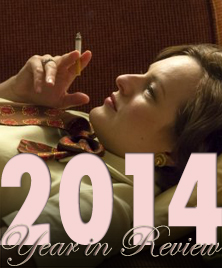 Let’s face it: Jimmy Fallon is an okay if utterly predictable choice for Entertainment Weekly’s annual “Entertainer of the Year” title, which can occasionally become more of an honor for being widely-known and well-liked than, you know, being consistently entertaining. (Have they made a truly interesting choice since that three-year, Oscar-certified run of Russell Crowe, Nicole Kidman, and Denzel Washington from 2000-02?)
Let’s face it: Jimmy Fallon is an okay if utterly predictable choice for Entertainment Weekly’s annual “Entertainer of the Year” title, which can occasionally become more of an honor for being widely-known and well-liked than, you know, being consistently entertaining. (Have they made a truly interesting choice since that three-year, Oscar-certified run of Russell Crowe, Nicole Kidman, and Denzel Washington from 2000-02?)
Rather than continue to pat the backs of those like Ben Affleck, Taylor Swift, Robert Downey, Jr., and J.K. Rowling – i.e. prominent pop culture presences and former “Entertainers of the Year” whose dominance over their respective industries is already deep and durable – let’s take a moment to honor some of our favorite hard-working actors and actresses who zig-zagged across mediums this year, making crucial contributions to the entertainment landscape, but who likely won’t be collecting any golden statues for their unique and indispensable achievements in 2014.
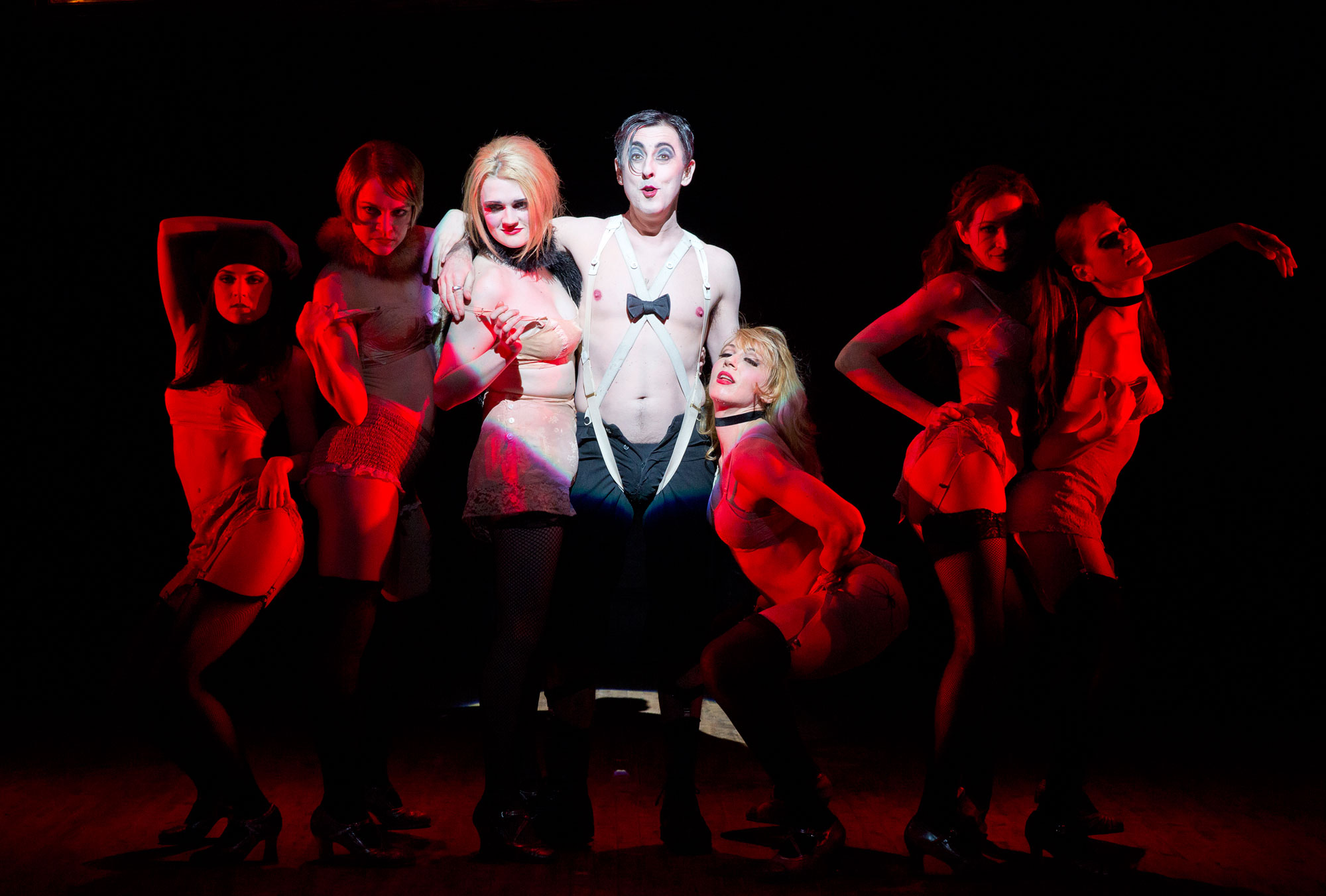
Alan Cumming, who lent his impish, adventurous energy to two wildly disparate roles this year, reprising his bawdily iconic take as the Emcee in Roundabout’s Cabaretrevival, while continuing to play his most unusual role as the sardonic and perpetually stressed-out campaign manager Eli Gold on The Good Wife, which is still the best thing on television. It’s a testament to Cumming’s versatility that he seems equally at home warbling in an evening gown and defiling chorus boys, as he does striding around an office and barking into a cellphone. In between suiting-up on screen and dressing down on stage, Cumming also penned a moving and well-reviewed memoir about his troubled childhood in Scotland entitled Not My Father’s Son.
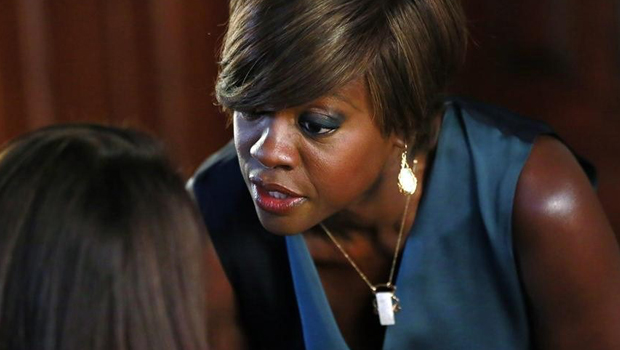
Viola Davis, who continues to be better than any of the material she’s given, but still acts the hell out of everything she appears in, all the same. I’ve already written about how gorgeously she improves the standard mother-son arc of Get On Up, but let’s also give Davis her due for surpassing such esteemed company as Jessica Chastain and Isabelle Huppert to present the only credible human being in that weirdly noncommittal triptych The Disappearance of Eleanor Rigby, in which she plays Chastain’s professor and newfound confidante to weary, seen-it-all perfection. And finally, I still have my fingers crossed that How to Get Away with Murder will work some Scandal-like magic and pick up as it goes, but Davis is unqualifiedly great and effortlessly magnetic even amid mediocrity. We can never stop beating the drum for this gloriously gifted woman.
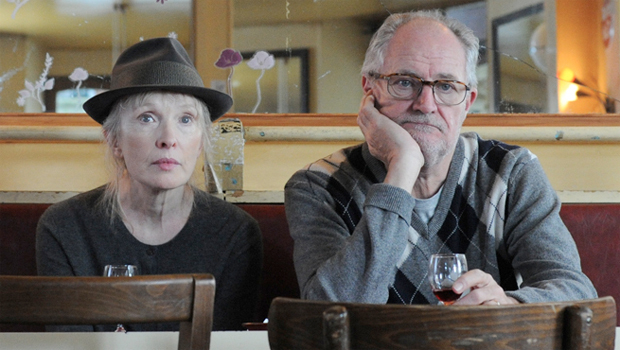
Lindsay Duncan, who, yes, played an indelible cobra as Birdman’s venomous voice of theatrical critique, but who also single-handedly dispels the lazy claims that 2014 was a weak year for lead actressing. I wish enough “pundits” would take it upon themselves to journey past their Wilds and Gone Girls and take a well-deserved look at Roger Michell’s marital dramedy Le Week-end, in which Duncan and a never-better Jim Broadbent work through the poignantly personal travails of ripened couplehood while celebrating their anniversary in Paris. Proudly reckless, boldly tetchy, and gleefully tongue-in-cheek, Week-end’s Meg is a marvel of deliciously detailed characterization and one of the acting achievements of the year, thanks to Duncan’s slyly sublime sorcery. (I mean, that voice alone!) Duncan’s also currently on the boards as Glenn Close’s acerbic, alcoholic sister in the revival of Albee’s A Delicate Balance and she’s still a staple on British television, having made appearances this year on Sherlock, Black Mirror’s jaw-dropper of a first episode “The National Anthem” (only recently made available on Netflix), and The Honorable Woman, providing the latter with a quietly memorable take on the exasperated ex-wife, which leads us to…
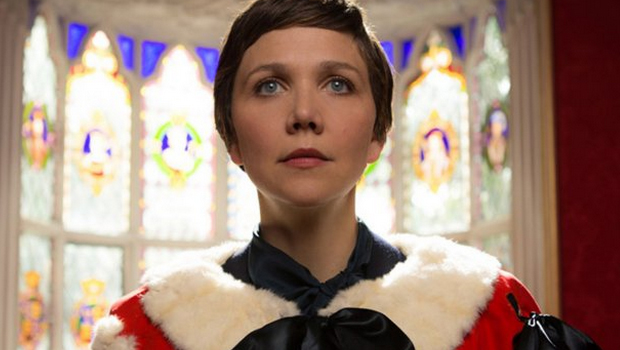
Maggie Gyllenhaal, who never really reached the summits of critic-stamped screen stardom that surely seemed attainable during the Secretary and Sherrybaby days, but who has nonetheless continued to offer terrific and thoughtful work across a variety of mediums. New Yorkers have a little more than a week to catch her in the current revival of Tom Stoppard’s The Real Thing (closing January 4th), in which Gyllenhaal pairs her usual flair for emphatic (if often unstable) eroticism with an intriguingly assured intelligence as an impassioned actress who throws herself heart-first into a relationship with a married playwright. She’s hilariously and cuttingly unhinged as the only reason worth watching Frank, playing the bitter, Bening-ish bandmate/protector of Michael Fassbender’s bobble-headed lead singer. Gyllenhaal’s great in both projects, but she’s downright fantastic in The Honorable Woman, the BBC miniseries that is equal parts timely political thriller and trenchant character study, and which has given Gyllenhaal her juiciest role in years as an unraveling Anglo-Israeli arms heiress urgently trying to bring peace to the Middle East. Gyllenhaal’s elegant and emotionally daring performance is just another compelling reason to keep this weirdly underappreciated actress in play.
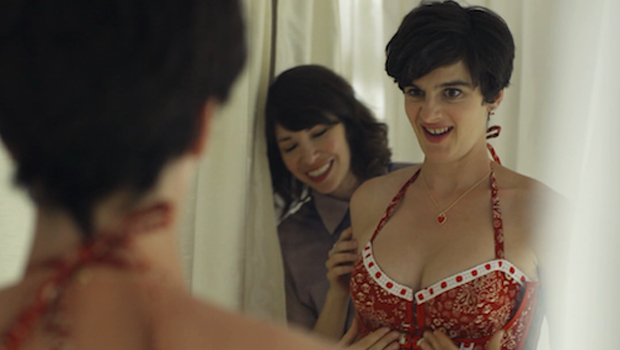
Gaby Hoffmann, who is a national treasure. Besides providing such selfless, straight-shooting support to Obvious Child, ensuring that the film remain a warm and witty sketch of a circle of intimates rather than a lopsided vanity project, and giving Girls’ third season a welcome dose of droll derangement as Adam Driver’s loopy sister, Hoffmann is fully deserving of the praise and prizes that Jeffrey Tambor has received for Jill Soloway’s miraculous series Transparent. The entire familial ensemble (to include Jay Duplass, Amy Landecker, and Judith Light) clicks like crazy, with each performer projecting a whole host of complex and authentically-layered affinities, histories, and antipathies around one another, but it’s Hoffmann’s work as impetuous, indecisive baby sister Ali that has somehow lingered the most in my mind. It’s one thing to take the role of the caustic, cash-strapped family fuck-up and make her funny, charming, and inappropriate. It’s another thing entirely to invest so much extra ruefulness, wistfulness, selfishness, self-righteousness, sexiness, continually shifting sensibleness, and totally committed weirdness into a single character that she becomes someone we not only know, but someone we are unable to remember not knowing.
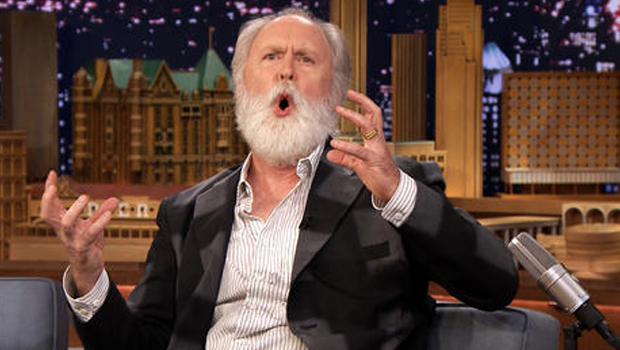
John Lithgow, who has had quite an enviable hot streak this year, the crowning achievement of which is his beautifully loose and lived-in performance as one half of 2014’s most believable onscreen couple, gay or otherwise, in Ira Sachs’ Love is Strange. In addition to his affecting and attentive leading man work, Lithgow also made his mark in two other noteworthy releases, imbuing bit parts in both The Homesman and Interstellar with muted, offhanded conviction. And that’s just on screen! Lithgow also gave good Lear in the Public’s August Shakespeare in the Park production, nailing the punchy imperiousness while adding an ungainliness to the declining King that in its plaintive way was just as tragic as any of the Bard’s plot turns. He’s also currently co-starring with Duncan in that same production of A Delicate Balance, closing out a banner year with yet another reminder that our most abiding and admired talents have endless shades to show us.

Elisabeth Moss, who, on the basis of her sterling work on the Sundance circuit, proves once again that she will be just fine when Don Draper lights up for the last time. She earned raves this year as Jason Schwartzman’s straying, sympathetic girlfriend in Listen Up Philip and rejuvenated some run-of-the-mill themes about marital devotion inThe One I Love with such a persuasive mix of pep and precision that I hardly noticed their familiarity. I’m excited by the prospect of Moss becoming a full-time film presence, but I hope she gets handed at least half as dynamic a role as Peggy Olson, whose professional rise and personal stalling-out Moss continued to chart with instinctive emotionality and endless empathy on the first half of Mad Men’s final season, which began with Peggy collapsing in tears on her apartment floor and ended with her officially taking the reigns from her former boss-turned-humbled colleague. Even if Emmy, SAG, and Golden Globe voters failed to appreciate the magnificence of Moss’ work this year, those of us still watching can take pride in seeing this superbly skillful actress finish off her work as one of TV’s most beloved heroines before heading off into the promising future that awaits her.